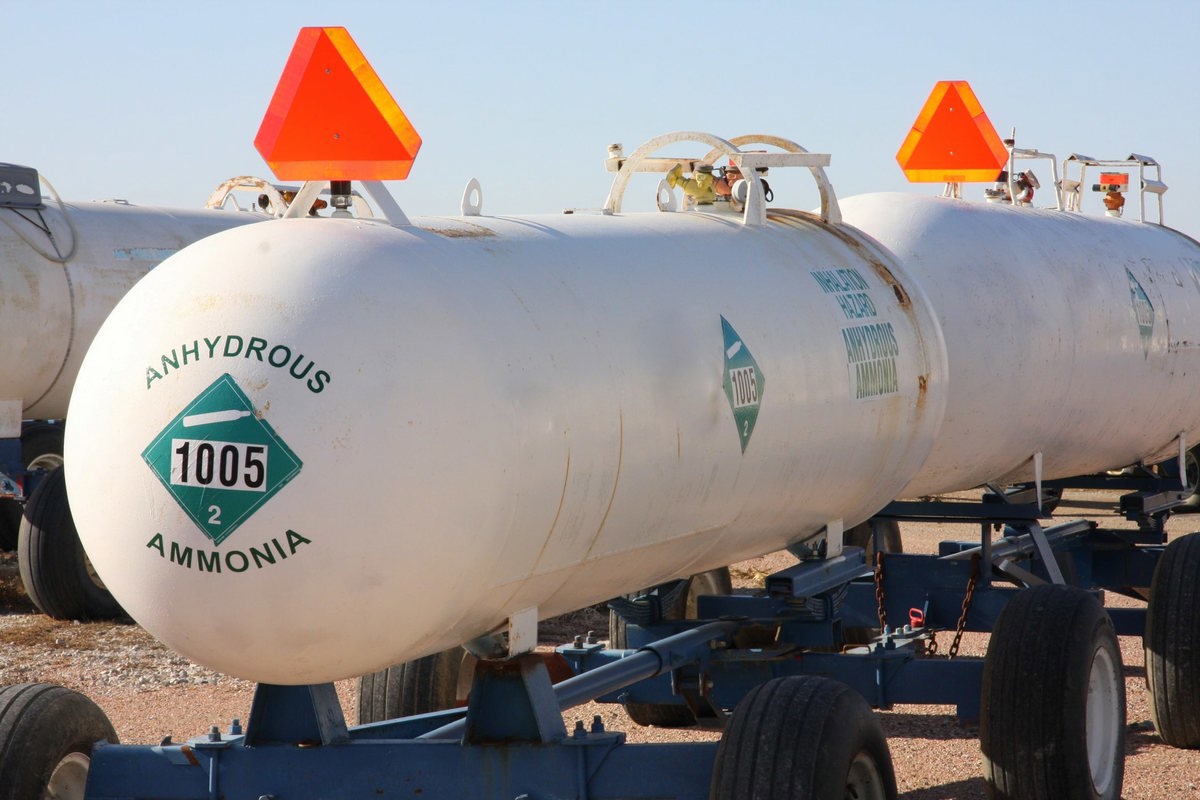LR calls for improvements in safety protocols for alternative fuels
The global shipping industry's transition to zero or near-zero carbon fuels is making significant strides in both technology and investment, but "critical challenges remain," classification society Lloyd’s Register (LR) said.
 PHOTO: Anhydrous ammonia tanks. Getty Images
PHOTO: Anhydrous ammonia tanks. Getty Images
Despite the maritime industry's rapid advancements toward its decarbonization goals, significant challenges persist, LR’s Maritime Decarbonisation Hub said in a recent report.
The report highlights safety concerns, particularly with the use of alternative fuels like ammonia, hydrogen and methanol, emphasizing the need for continuous improvements in safety protocols and crew training. Additionally, vessel design must be optimized to minimize risks to the crew.
From a technological standpoint, challenges like reducing methane slip, ensuring uninterrupted ammonia engine operation, and decreasing reliance on pilot fuels must be resolved to guarantee the viability of these fuels as low-carbon or zero-carbon solutions, LR said.
Accurate measurement and mitigation of fugitive methane emissions during liquefied methane combustion are critical issues with no prominent solutions yet. Additionally, “regulations for methanol-fuelled ships are already established, although the risks related to toxicity and flammability are not yet widely understood,” LR said.
Ammonia offers economic and efficiency benefits over other alternative fuels, but its toxicity and corrosiveness pose significant concerns. Meanwhile, hydrogen’s need for compression or cryogenic storage complicates onboard logistics, adding to bunkering and operational costs.
“Investigating the impact of ammonia spills in water has been identified as a crucial area for further study,” LR stated.
A critical factor in achieving safe and effective adoption of these new fuels is the development of a robust regulatory framework, led by the International Maritime Organization (IMO), along with consistent implementation across the maritime sector.
Policy interventions, supported by technological advancements across the supply chain, are crucial to mitigate investment risks and ensure future fuel supply and infrastructure, according to LR. Ultimately, collaboration across the supply chain will be vital to overcoming these challenges and enabling the successful transition to cleaner marine fuels.
By Aparupa Mazumder
Please get in touch with comments or additional info to news@engine.online






